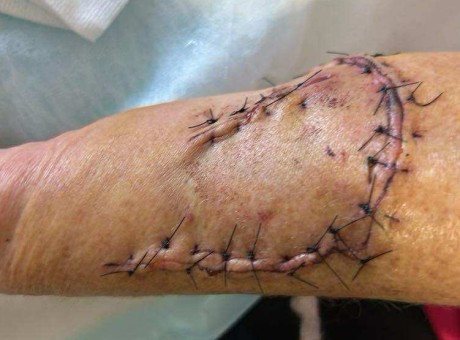Cody Tucker: A changed man?
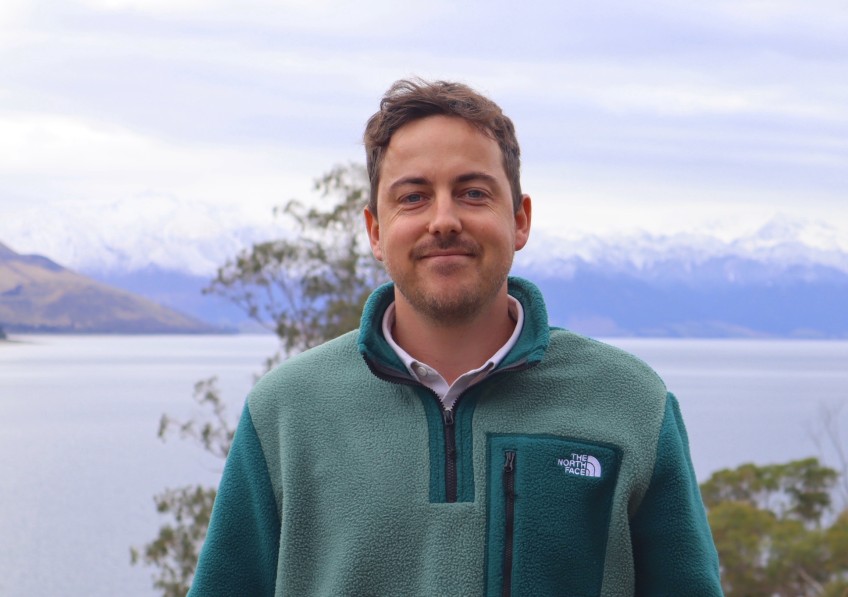

By Amanda Robertshawe.
Cody Tucker is the youngest in the current line-up of QLDC Councillors. When he first sought election in the Wānaka-Upper Clutha Ward in 2022, he was just 27.
A lone Millennial voice in what could justifiably be considered a Boomer construct, Tucker’s throwing his baseball cap into the ring for a second term. Perhaps that’s a beanie given the temperatures in our latitude.
Being so much younger than his fellow councillors, how did he cope in the bare-knuckled arena of local body politics?
“It was like a marathon. I think it was, you know, rewarding, but challenging.”
“I think it tests you, and your personal boundaries, a lot, and it can be quite confrontational. But I think, overall, it helps you grow as a person enormously, and it's definitely helped refine my thinking, and made me more courageous to be more outspoken.”
So what did Tucker find confrontational?
“In general, dealing with a committee of people with differing views, in a political environment where everyone's trying to be persuasive. And having to choose in a very direct and binary, “for or against” process. It always becomes, you know, as you’ve only got two options, a very determined, yes or no, outcome.”
Google describes Millennials, among other attributes, as valuing collaborative environments. Perhaps that’s why Tucker struggled with the constraints of binary voting.
Apart from the decision-making process, how has this first term impacted on his attitude towards being an elected representative?
“It's been a sobering experience in terms of the complexity and breadth of things you end up having to cover. I have a huge amount of sympathy and gratitude to everyone else in this position now that I understand the work that goes unnoticed. It has, at times, felt kind of paternal in ways, having to look after the best interests of the community, whether they follow along or not, when you have to make a call where some people won't be happy.
“I've also noticed how much tone matters in conversations. People, understandably, get upset if they feel they haven’t been heard.”
Millennials are supposed to be team players so how did Tucker come to terms with the much publicised toxicity of this Council term?
“The current environment is mostly constructive and respectful, but there have been plenty of times where the environment’s been very uncomfortable, unprofessional, and unnecessary, between elected representatives.”
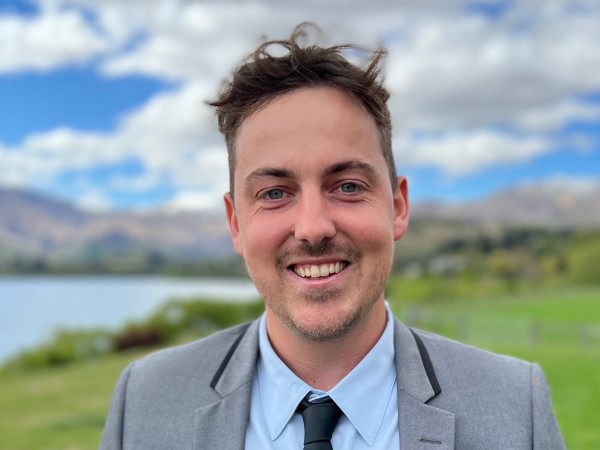
-
Cody Tucker - on being elected in 2022. The tie has gone.
“I think we could better utilise each-others skill sets, and ultimately serve our community better, if we get the culture piece right from the start.”
By virtue of his age, Tucker brings an element of diversity to the largely homogenous Council table. However, does his current thinking, and approach to issues, reflect diversity?
“I am thinking of what I will inherit as much as I am thinking how this affects me now. So there's a strong connection to the longer-term outcomes. I also feel like I'm generally more optimistic and open-minded because of my age, which tends to sway how I think of certain issues and allows for flexibility.”
Given his youth, would Tucker say he’s a ‘safe pair of hands’ when it comes to ratepayers interests?
“I would like to think so. I am really involved in local sports teams, I have a house, and 2 jobs to survive, which makes my life pretty relatable to the average working class here. All of my friends, and most of my family, live here so I have every reason to want to do a good job.”
“And I know I care deeply about getting things right too because it takes a massive toll on me emotionally.”
“I take this role extremely seriously and hope I have a reputation for being a fair and balanced person, generally.”
Tucker lives in Hāwea where rates increased significantly, as is the case in Wānaka. This year’s increase is in the region of 18%. How does he feel about that?
“It's never fun to be in that position, and no one wants to increase rates. We didn't take it lightly.
I think we had a really challenging job of coming in, inheriting a lot of problems, and doing the best with what we had.”
Yes, Cody, but that is an 18% increase, impacting on people's outgoings in an economic environment which is already stressed.
“Well, one of the big contributors to that is the cost of water infrastructure. If you look at all of Council's costings on everything, and how much they spend on water versus how much they spend on everything else, water eclipses it by a mile.”
“And so I've been supportive of a transition to a CCO model.”
“Those are my personal views. So that's how I voted recently when it came to the water reforms, which will change how rating works in the future. And I think there'll be far more transparency with what's spent when you get the essential infrastructure that's non-negotiable out of the way.”
“I want water to cover its costs. No one debates whether it's a nice to have, and rising rates are always blamed on political nice-to-haves, when the lion's share of the Council’s spend is on water infrastructure.”
“Therefore, separating the balance sheets will make keeping the Council to account easier when it comes to discretionary vs critical spending.”
“I also think a professional board would be more competent, proactive, and will legally be more accountable to the decisions made. Lastly, a CCO has a singular focus and can plan over decades, not political trienniums which can have significant swings in priorities.”
Does Tucker seriously think the CCO model will be of benefit ratepayers, and the total amount of rates they’ll have to pay?
“The costs to deliver services will be less, in the long term, because of efficiencies and singular focus. The reason it's slightly higher to begin with is because it will take some capital to establish, and will be paying down debt faster. The reality of the current situation is that the cost of water infrastructure is being subsidised by Council’s other roles.”
“Isolating the water infrastructure budgets has highlighted how much worse the debt to revenue ratio is to Council’s typical borrowing limits.”
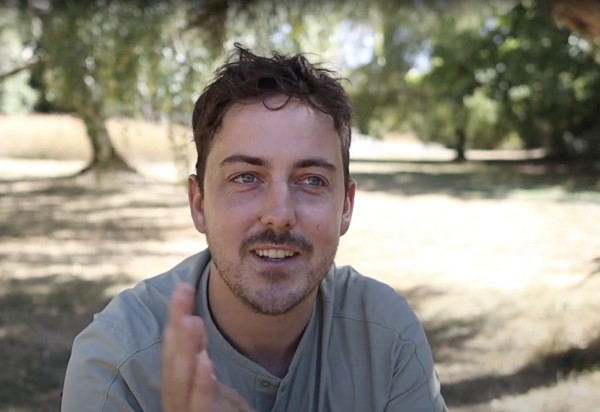
-
The early days saw Cody take to You Tube in a series of explainers - but the videos have become less frequent.
In Tucker’s mind, how will the CCO structure be of the benefit to the Council?
“Council will still retain ownership, and ability to direct the high-level objectives of the organisation, while narrowing the staff’s focus on doing their core roles brilliantly”.
“There's a lot to be said around not trying to be everything to everybody and, most people agree, they just want it to work without costing the earth.”
Currently, Wānaka Airport is another sensitive subject on Tucker’s patch.
Recently, Crux published an opinion piece by Nick Page about the airport’s debt. Tucker’s explanation for the Council’s actions would suggest he’s done some homework.
“The reason Council is consulting with the community around the future of Wānaka airport is, in large part, due to the pressure it’s received from CAA to invest in increased safety measures due to the number of landings per year reaching its current threshold.”
“As Council will most likely have to invest millions into the airport to do this (unless it caps the number of landings), it’s sensible to create a high-level vision that reflects the community’s wants and needs.”
“The history around the relationship with QLDC after the episode involving the Queenstown Airport company highlights the reason for investing in an external agency to cover consultation, to ensure there’s independence, and open mindedness, which is needed for such a sensitive discussion. There will always be those who, no matter what Council does, think it has nefarious intent but, from my position, this is the most transparent way to go about this.”
Whether or not his conclusions will appease Wanaka stakeholders and ratepayers is another story.
Apart from his personal development, and determining how the local body system works, have there been other gratifying achievements for Councillor Tucker during the last three years?
“I don't always love the whole “that's what I did, and that was all me”. I've noticed that anything that you do in this game is very reliant on a lot of people coming together so I don't want to say, you know, I did this, and that's my political win.”
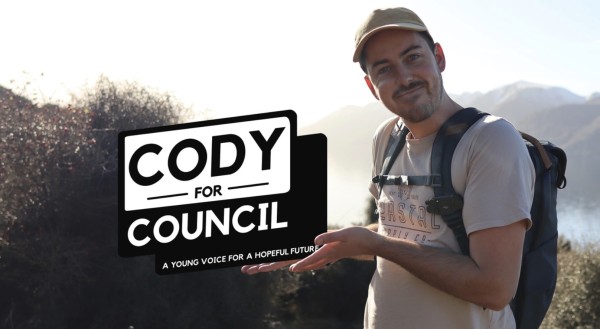
-
Cody Tucker is standing again for the Wānaka-Upper Clutha ward of the QLDC
An answer definitely in keeping with the Millennial profile.
“The thing I'm most proud of is having integrity in this environment, being able to celebrate people when they've done great things, and just do the work.”
However, whilst staying true to Millennial values, Tucker demonstrated he’s capable of asserting his views at the Council table.
“There was a decision regarding an affordable housing area in Lake Hāwea where I challenged a Developer who was trying to raise both the house and land prices. I felt the Developer’s justification for those price increases exceeded inflation and was not in accordance with affordable housing.”
“After a healthy debate, I managed to sway the majority of Council to adjust the house prices for inflation, not the market price, which will result, eventually, in more affordable housing options in Lake Hāwea.”
Google also describes Millennials as having a strong sense of social consciousness. If this is the case, it’s probably unsurprising that sustainability, and the environment, are in Tucker’s wheelhouse. He’s proud of Council’s current achievements in these areas, however, he’s very clear tackling these issues is not entirely the Council’s responsibility.
“Council's has taken its role as a leader very responsibly. It’s being taken very seriously.”
“My point is, there is a natural limitation to what Council can do to demonstrate climate leadership due to the nature of its roles and responsibilities. I believe it shows strong competence, and leadership, in the domains where it's relevant, but it will still have to deliver roads, process waste, and consent legally compliant buildings etc.”
“I look at Project Tohu as one of the biggest re-cloaking of native vegetation in the Southern Hemisphere. And I look at the Destination Management Plan, which was one of the most aggressive targets around carbon reduction.”
“And you know, a lot of the decisions that we've made through the climate lens have been really progressive and front-footing. I think it's done in a very collaborative way as well.”
“I want to see us be really more permissive around solar. I still hear stories about people having problems installing solar panels, and I want to see free-market energy being a big part of that picture and Council, as a community leader, doing its part.”
“But I also balance that with the fact people pay rates, they're very high. We want to make sure that we're not paying rates to solve the climate.”
Tucker’s also focussed on responsible solutions for refuse disposal.
“I think the biggest opportunity for Wānaka over the next 3 years is in the Waste space. Council has dedicated significant funds to build a new recycling centre (MRF), a new refuse transfer station (dump site for Wānaka) and Wastebusters is looking to double its footprint and tackle construction waste.”
“The big the big focus of our latest waste management minimization plan is green waste, and construction and demolition waste.”
“All of this could potentially happen at the Ballantyne Rd site, creating an innovative waste mecca.
We will also be introducing compost bins to kerbside collection and there are some innovative initiatives trying to disrupt the local plastic stream in Wānaka that could be integrated also.”
It’s all ‘well and good’ to have inspirational intentions but how much effort has Tucker invested in addressing the problems of waste management?
“I have been a champion in the waste space, on the panel for the Waste Minimisation Community Fund Panel for three years, chairing the WMMP hearings and, as deputy chair of infrastructure, waiving the Wastebusters flag.”
“I'm wanting to pull the players in the plastic cluster together to get some steady momentum and fight for an integrated approach to solving the waste problem.”
If re-elected Cody, along with his fellow Councillors, will have to appoint a new Chief Executive. What does the job description look like through ‘Millennial’ eyes?
“I think, yeah, everybody brings with them something great and something they're not good at. That’s thing I've learned about people, in general. I think, for the new the Chief Executive, it would be great to see somebody who really is focused on rebuilding community trust, fore-fronting communication, thinking of new and fresh ideas, where we can change the process in a way that's more intuitive to people, so that people who are engaging can feel like things are happening. And even if things don't go their way, they understand why. There just needs to be a better way of nurturing of that relationship.”
“Ultimately, you know, we move at the speed of trust. When there’s no collaboration between the community, the Council, Government, and industry, the issues exacerbate – worsening infrastructure, traffic congestion, housing accessibility, and poor social outcomes. We can rebuild that trust back and be more collective around whichever direction we go. So, I think that as a focus would be a good strategic move.”
Central Government is driving growth in this region. How does Tucker feel about these initiatives which are forcing more housing developments on the region?
“Growth for the sake of growth is the ideology of a cancer cell. At the moment, I feel growth is an impediment for community well-being.”
“However, growth could be better utilized to solve the current problems of crippling infrastructure if we can improve the regulations around development. It's about leveraging that growth in order to reinvest in the local community.”
“I agree that the current settings for Local Government are relatively untenable and am keen to see reforms that enable us to better provide for the community without having to follow the "break it to make it" model. i.e. we won’t get Central Government funding unless we have a crisis.”
“We don't own the Fast Track process, we're essentially only a stakeholder that can be consulted with. It undermines a lot of what a typical consultation would be like.”
“So people are feeling disempowered when it comes to the decision-making process in that respect.”
“Regional Deals, I think, have the potential to be really great. It allows consideration for the challenges specific to the Queenstown Lakes District. For example, we have a high visitor population but a small rate payer base. We have limited developable land, on account of our geography, and we have a very high population growth rate. Therefore, the current ratepayer funded model presents a lot of problems.”
“I think we could be a great testing ground for innovative ideas such as visitor levies, and gondolas to address traffic congestion.”
During his three years as a Councillor, Cody Tucker has been on a fast-tracked learning curve in order to function in, what was for him, an unfamiliar, environment. He says his entrée into politics was a bit like having to “drink from a firehose”.
And Tucker’s prepared to come back for more, even though it’s probably felt as though he’d stepped into ill-fitting Boomer shoes. However, he’s promoting Millennial values as a reason to stand again.
“I think my strength is being able to deal with differing personalities, whether I agree with them or not, and understand where they come from, and be a clear and articulate communicator in a very intense environment.”
“It's quite hard to call on the best of yourself when there's a lot of pressure. And I think I do that well, I think I also am able to understand people I disagree with, and have conversations with people I'm not aligned with, which I think is a thing that we're losing more and more as we have this polarizing division between the sides of government, or ideologies.”
“My hope is, is that by doing more of that, you inspire more people to be having clear and honest debates that are respectful and where, you know, we can have that civil discourse without it being like, overly combative.”
Has Cody changed in his time at QLDC? Here’s our full podcast with him from June 2024.







